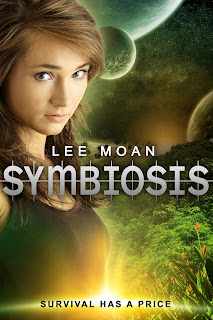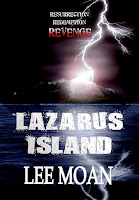The Thing All Parents Fear
Some years ago, I recall Stephen King talking about Pet Semetary (still one of my favourite King books) and the hesitancy he felt about actually publishing it. The cause of his hesitancy? The fact that the story featured the death of a child - surely the greatest fear of all parents. I believe SK referred to that particular plot development as "real horror". There's another quote out there (I forget from whom) which goes something like this: "In a novel, you can kill as many men as you like. You can kill women if they deserve it (if they're really bad) and you can kill a child if you have very, very good reason. But if you kill off a dog in your book, you're probably going to alienate your readers completely." I'm paraphrasing here but that's the essential gist. Incidentally, I love the irony of the quote that dogs spark a greater emotional reaction than children. Anyway, point being that no matter how great the tale you are spinning, readers (and I count myself amongst that number) are emotionally connected to certain things and as a result may react to your narrative in an unexpected and seemingly quite irrational way. I think, in literary terms, this sort of reaction goes back to the public outcry Charles Dickens experienced when it was discovered that he was about to kill off Little Nell in The Old Curiosity Shop. Readers petitioned him to change the outcome, to save their beloved Little Nell, a character they had come to love and care about. Of course, Dickens did not. He told the story he set out to tell. That is the writer's job.
Children die. They die all the time, all around the world, every day. It is heartbreaking and traumatic, but it is part of life. I remember watching a BBC documentary some years ago about the hardships suffered by children in an African community which believed in the occult practice of Kindoki. In one scene, a child of no more than 3 0r 4 years old was sick with some incurable disease and a holy man was standing over him, conducting a deeply upsetting ritual over the boy (he was crying throughout). The journalist reporting the event said in voice-over: "The boy died two nights later". I couldn't sleep that night. I couldn't stop crying for that little boy, so scared and alone and confused. I've never been so upset by something I've seen on television. So I totally get why people react so strongly to children dying even in a fictional narrative. We, as a society, are deeply sentimental when it comes to children. No one in their right mind wants to see a child in pain, or worse still, experience the death of a child. My novel, Lazarus Island, features such an event, and I have to say, the original ending kept me from publishing it for quite some time - years, in fact. I wasn't happy with the original ending at all. I personally found it so dark and depressing that I simply shelved the book and moved onto other stories. But I always loved the mythology of the island and, like Lazarus himself, the story just refused to die. Finally, I found the ending the story needed and I believe it directly addresses the issue I'm trying to highlight right here. At what point do we let go of our emotional connection to a character and allow the story to unfold as it was intended? (The only pop culture example I can think of to illustrate this point is the death of Jack at the end of Titanic - Jack and Rose should have been together forever!!!) The writer's dream is to create characters readers can care about. It shouldn't matter whether they're a child or an adult. A writer's responsibilty is to "tell the truth" and, like I said, sometimes children die - in real life and in fiction. I have four children myself, so it's not something I say lightly, or without personal experience. Children are precious and that is what makes the human experience so painful and difficult and - ultimately - so rewarding.
Children die. They die all the time, all around the world, every day. It is heartbreaking and traumatic, but it is part of life. I remember watching a BBC documentary some years ago about the hardships suffered by children in an African community which believed in the occult practice of Kindoki. In one scene, a child of no more than 3 0r 4 years old was sick with some incurable disease and a holy man was standing over him, conducting a deeply upsetting ritual over the boy (he was crying throughout). The journalist reporting the event said in voice-over: "The boy died two nights later". I couldn't sleep that night. I couldn't stop crying for that little boy, so scared and alone and confused. I've never been so upset by something I've seen on television. So I totally get why people react so strongly to children dying even in a fictional narrative. We, as a society, are deeply sentimental when it comes to children. No one in their right mind wants to see a child in pain, or worse still, experience the death of a child. My novel, Lazarus Island, features such an event, and I have to say, the original ending kept me from publishing it for quite some time - years, in fact. I wasn't happy with the original ending at all. I personally found it so dark and depressing that I simply shelved the book and moved onto other stories. But I always loved the mythology of the island and, like Lazarus himself, the story just refused to die. Finally, I found the ending the story needed and I believe it directly addresses the issue I'm trying to highlight right here. At what point do we let go of our emotional connection to a character and allow the story to unfold as it was intended? (The only pop culture example I can think of to illustrate this point is the death of Jack at the end of Titanic - Jack and Rose should have been together forever!!!) The writer's dream is to create characters readers can care about. It shouldn't matter whether they're a child or an adult. A writer's responsibilty is to "tell the truth" and, like I said, sometimes children die - in real life and in fiction. I have four children myself, so it's not something I say lightly, or without personal experience. Children are precious and that is what makes the human experience so painful and difficult and - ultimately - so rewarding.


Comments
So we must communicate each other to understand our feeling